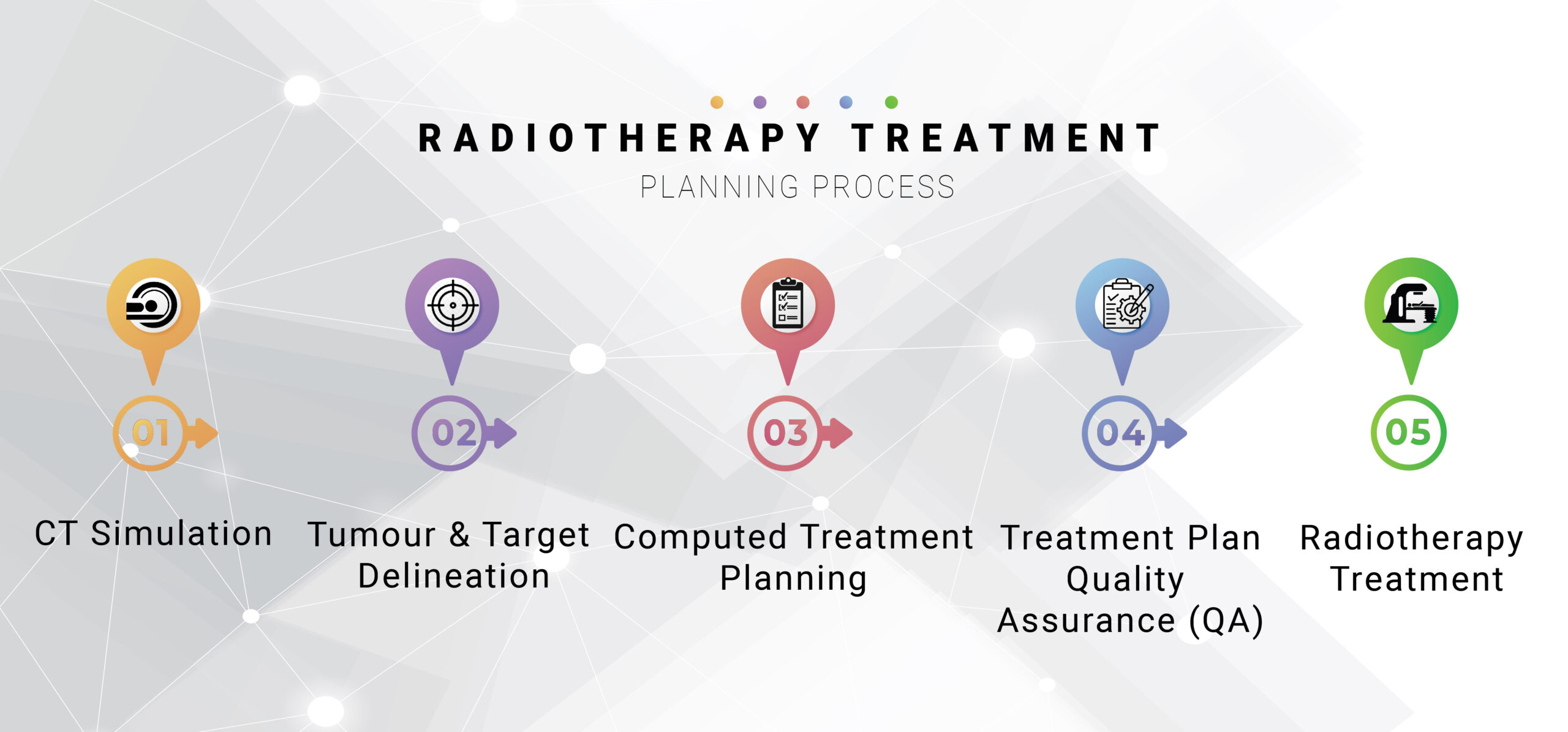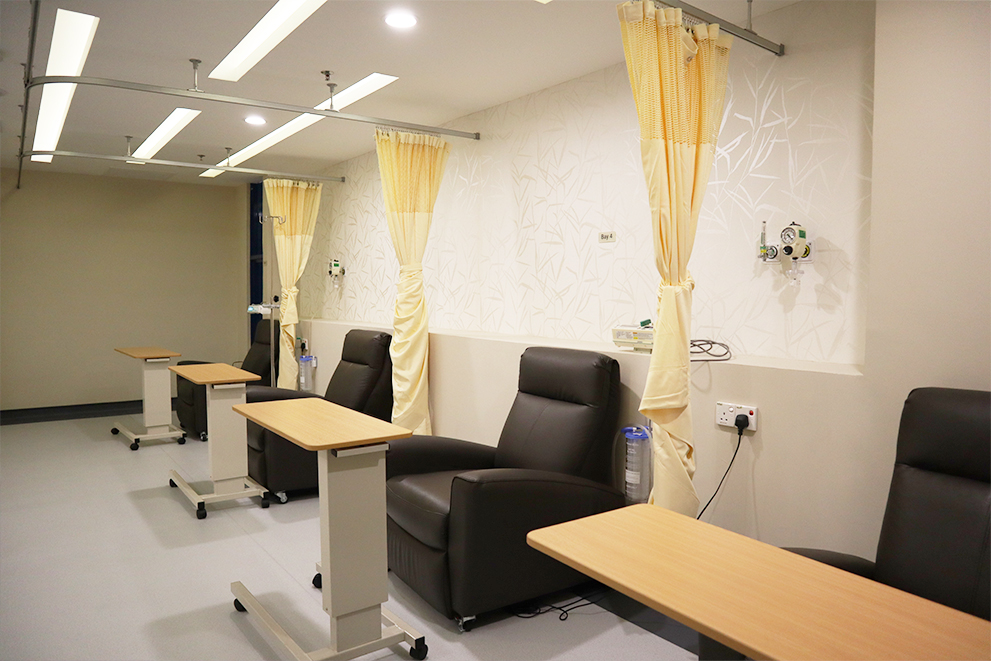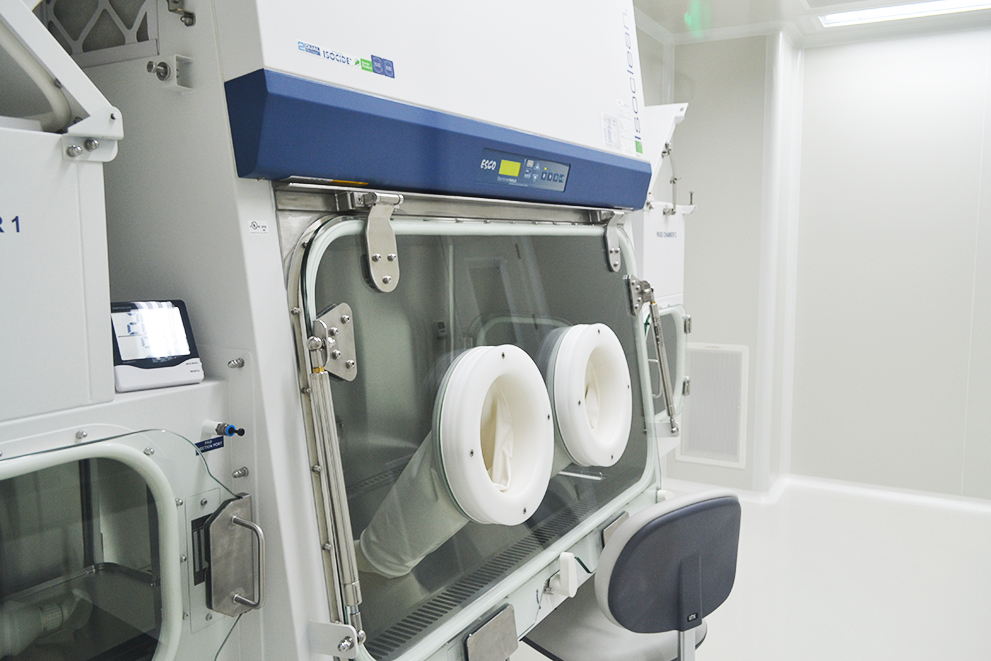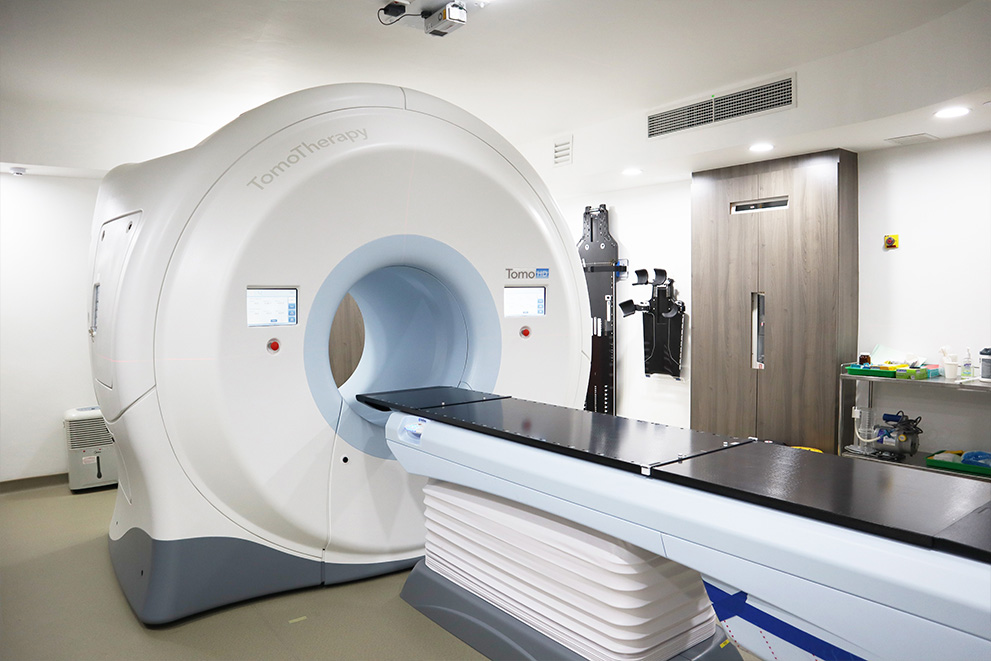Sri Kota Specialist Medical Centre has a fully integrated Cancer Centre, providing both systemic therapy and radiation therapy. The centre is optimally planned and built to provide a well-spaced, hygienic and comfortable environment to our patients and visitors. Sri Kota Specialist Medical Centre puts focus on providing exceptional quality of medical care and services to our patients by maintaining the highest quality of our facilities, technology and human capital. We are fully equipped with the latest medical technology to provide safe, effective and efficient treatments to our patients. Our team of highly skilled medical professionals, which comprised of Clinical Oncologists, Medical Physicists, Radiation Therapists and Post-Basic Oncology Nurses has been steadfast in serving our patients. One of our dedicated full-time Clinical Oncologists is Dr. Ina Shaliny Duraisamy, who brings her expertise and compassion to our team.
Early Detection Saves Lives. Consider a yearly cancer screening package specially designed for Males and Females.
Why Choose Us?
- Helmed By Experienced Consultant Oncologist who adheres to the latest International Cancer Guidelines
- Integrated And Well-Equipped Facility with advanced Ultrasound, CT and MRI Scans, Radiotherapy Facility, CDR Lab and operating theatre
- Provide Personalised Cancer Diagnostic and treatment planning through our multidisciplinary team
- Dedicated Healthcare Team to ensure maximum patient’s comfort
- Genuine Care and Empathy for every patient and their family members
Preparation for Treatment
- Clean house and do laundry
- Do your grocery shopping before your hospital visits
- Stock your cupboards with lots of easy-to-prepare meals
- Prepare meals in advance and freeze them for later
- Pack healthy snacks
- Prepare a treatment Bag which consist of:
- Sweater and comfortable clothes, blanket and pillow
- Music player, headphones and favourite music
- Reading materials/ crossword puzzles or other activities
- Lip balm, body lotion and calming teas like peppermint
- Notepad or journal and pen
- Let your friends and family know that you may need their help after treatment.
- If you have a child, look at your available childcare options. Tell the School or nursery so they can help support you and your child
- Talk to your employer about the possibility of working from home or working flexible hours
- Keep a diary to help you track your energy levels and plan around them
- Chemotherapy
Chemotherapy uses pharmaceutical drugs to treat cancer patients. It can damage the cancer cells at almost any anatomic location in the patient’s body. Chemotherapy drugs damage cells as the cells divide. This makes the drugs effective against cancer cells, which divide much more rapidly than most normal cells do. Chemotherapy is most often given via the vein (intravenously) and/or taken by mouth (orally). Chemotherapy is commonly given in courses (cycles), with rest periods in between. This allows the normal cells to regenerate and the body to regain its strength. Typically, Chemotherapy is given over 4-6 months, but it is also possible to have it for a shorter or longer period. Maintenance treatment (to prevent cancer from coming back) and palliative treatment (to control cancer or relieve symptoms) may last many months or years. - Targeted Therapy
Targeted therapy inhibits the growth of cancer cells by interfering with specific genes, proteins and/or tissue environment that contribute in the growth and survival of the cancer cells. It is considered as precision medicine which will only be effective if the indications are matched. The cancer cells must be tested to confirm if it contains the targets for this Targeted Therapy to work. Targeted Therapy is indicated for advanced Lung Cancer with driver mutations of EGFR, ALK or ROS1; Breast Cancer with HER2 protein overexpression; advanced Renal Cell Carcinoma and so on.
- Immunotherapy
Sri Kota provides immunotherapy in Klang. Immunotherapy enhances the body’s immune system to better fight cancer cells. Generally, there are 2 types of immunotherapy which are called the immune checkpoint inhibitors that allow immune cells to respond stronger to cancer cells; and monoclonal antibodies that marks the cancer cells to be better detected and destroyed by the immune system. It is also considered as another type of precision medicine which will only work if the indications are matched. - Hormone Therapy
Hormone therapy slows or stops the growth of cancer that uses specific hormones to grow. It can be given via oral and/or injection or via surgery to remove the hormone-producing organ. It is widely used to treat prostate cancers and breast cancers.
Success Stories


Radiation therapy uses high energy photons to destroy the cancer cells and also to irradiate the surrounding areas susceptible to cancer spread. Each radiotherapy plan is unique and personalised for each patient to deliver as much radiation dose to the cancer and as low as possible dose to the surrounding healthy tissues.
Our Cancer Centre is equipped with Accuray TomoTherapy system. It is an integration of Computed Tomography (CT) imaging and radiation therapy to deliver Image-Guided Radiation Therapy (IGRT) with high accuracy and precision. This system is capable of delivering 3-Dimensional Conformal Radiation Therapy (3DCRT), Intensity-Modulated Radiation Therapy (IMRT), Stereotactic Body Radiation Therapy (SBRT) and Stereotactic Radiosurgery (SRS). All of these treatments are delivered with image-guidance in our Cancer Centre.
- 3-Dimensional Conformal Radiation Therapy (3DCRT)
3DCRT is a safe and painless radiation technique that delivers radiation dose conforming to the target area. 3DCRT is mainly used for simple radical radiation therapy for cancers of the breast and pelvis and palliative radiation therapy.
- Intensity Modulated Radiation Therapy (IMRT)
IMRT is a safe and painless radiation technique that delivers highly precise radiation dose to the target area effectively while limiting the damage to the healthy tissues nearby. This increases the chance for a cure and lessens the severity of side effects. IMRT is used to treat a wide range of cancers such as the cancers of the head and neck, breast, lung, abdomen, cervix, endometrium, prostate, rectum and other sites.
- Stereotactic Radiosurgery (SRS)
SRS is a non-invasive, safe and painless procedure that delivers precise and very high dose of radiation to treat functional and non-functional abnormalities or small tumours of the brain.
- Stereotactic Body Radiation Therapy (SBRT)
SBRT is a specialized radiation therapy that delivers extremely precise and high radiation dose to small tumours in the lung, abdomen, prostate or spine. It is also a safe and painless procedure.

Surgical oncology focuses on using surgery to diagnose, stage and treat cancer. Palliative surgeries may also be performed to help control pain, increase a patient’s comfort level and manage cancer-related symptoms and side effects.



